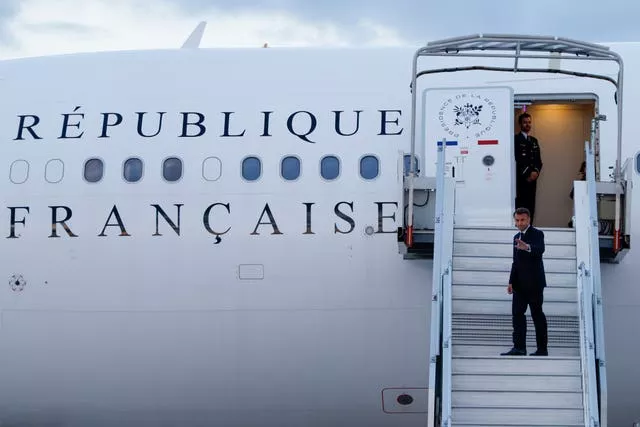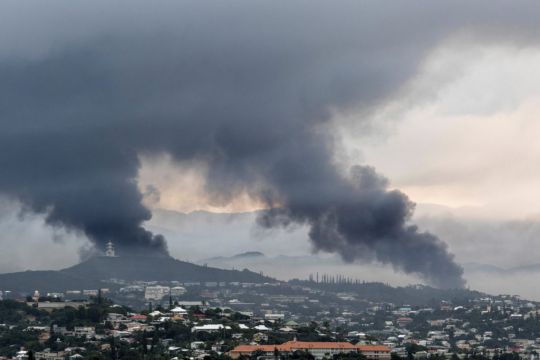French president Emmanuel Macron is flying to New Caledonia to seek a political solution to the unrest that has rocked the French archipelago in the south-western Pacific Ocean, with violence still simmering while he is in the air.
The unrest has raised new questions about Mr Macron’s handling of France’s colonial legacy.
There have been decades of tensions between Indigenous Kanaks, who seek independence for the territory of 270,000 people, and descendants of colonists and others who settled on the island and who want to remain part of France.

The unrest erupted on May 13 as the French legislature in Paris debated amending the French Constitution to make changes to New Caledonia voter lists.
Opponents fear the measure will benefit pro-France politicians in New Caledonia and further marginalise the Kanaks, who once suffered from strict segregation policies and widespread discrimination.
Mr Macron, who left France on Tuesday evening, is expected to land on Thursday morning in New Caledonia, where the presidential Elysee Palace said that he will focus on restoring order and facilitating dialogue among local leaders, and to discuss the significant reconstruction needed after violence has caused damage estimated to be in the hundreds of millions of euros.
Mr Macron’s objectives also include expressing solidarity with the territory’s inhabitants, thanking security forces, and meeting with local leaders to discuss reconstruction and political issues.
Mr Macron has long been actively engaged in New Caledonia’s political landscape, particularly in facilitating dialogue between pro-independence and pro-France factions.
His efforts culminated in a 2018 referendum in which New Caledonians voted to remain part of France by a narrow margin.
The New Caledonia High Commission reported that 1,050 reinforcements from the gendarmerie, police, and civil security have been deployed, over 90 roadblocks have been dismantled, more than 280 people have been arrested, 84 police officers and gendarmes have been injured, and no new fatalities have been reported.

Six people have died in the violence so far, including two members of the police.
A third evacuation flight reached the Australian city of Brisbane on Wednesday, bringing 103 Australians and family members from New Caledonia, Australian foreign minister Penny Wong said on social media.
It was not clear whether the flight was a French government plane as had been planned, or one of the Australian military aircraft that has been placed on standby to hasten the evacuation of Australian nationals.
“Thank you to officials for operating these flights,” Ms Wong said on the platform X.
The Australian military flew 115 passengers on two flights from New Caledonia late Tuesday before France announced it would take responsibility for evacuating stranded foreigners.







